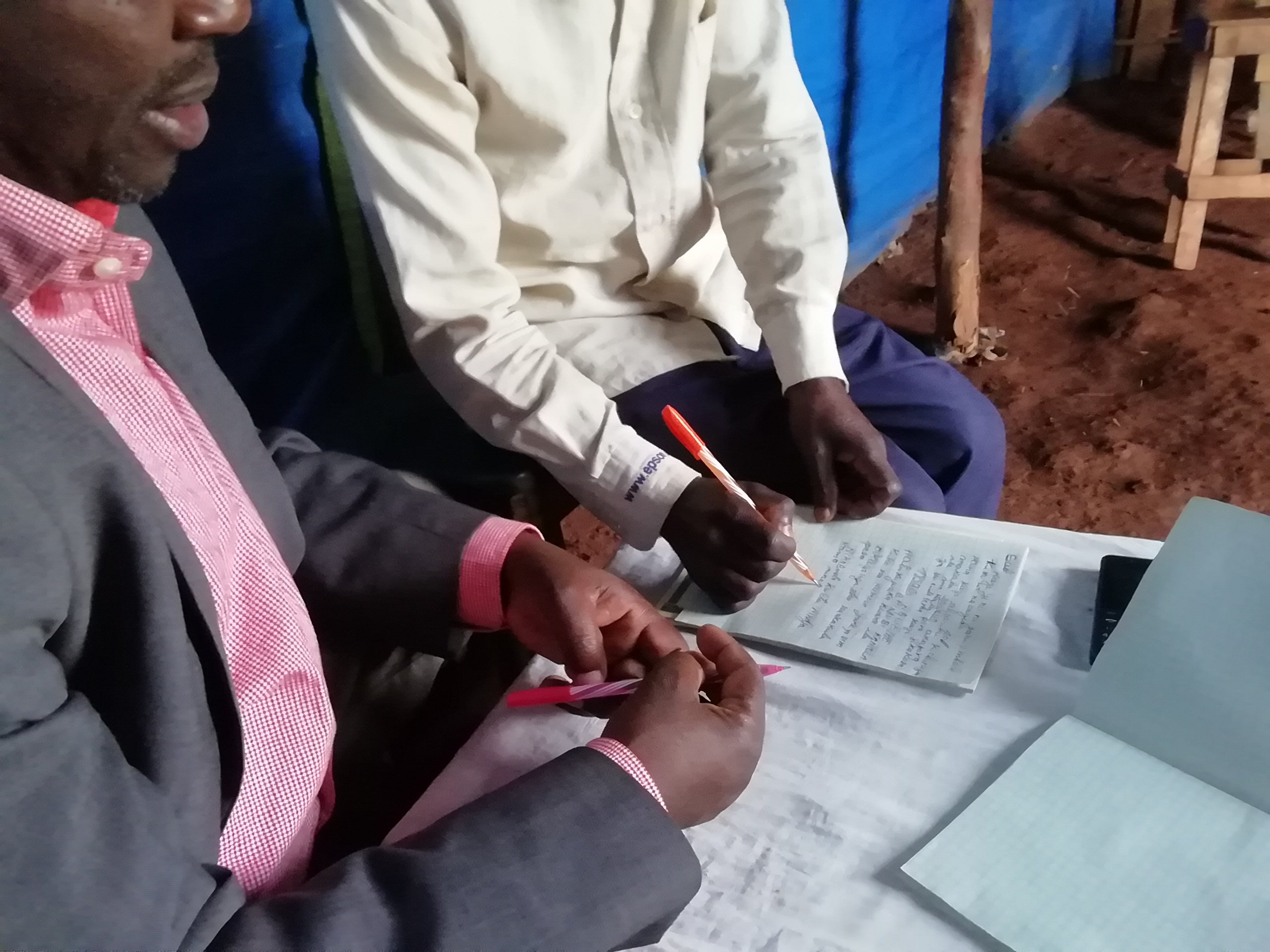"I’d say 100% of the IDPs are still connected to the place of origin in one way or the other"
By Carolien Jacobs, Leiden University
Notes on data collection, analysis and COVID-19 in Congo
The title of this blog gives you a little sneak preview into the discussion we had about our data. It was raised by one of the researchers of the team and agreed upon by his fellow researchers. Keep an eye on forthcoming publications to learn more about this.
The DRC team completed most of the qualitative data collection in December 2019. In February 2020, the team organised a three-day analysis workshop. These were intensive days during which we talked in great detail about the data that we collected thus far and how to make sense of the data in relation to each of the five main themes of TRAFIG. It was very inspiring to see the data come alive and to get analytical meaning. The title of this blog gives you a little sneak preview into the discussion we had about our data. Keep an eye on forthcoming publications to learn more about this!
During our workshop we developed plans to write papers about to ensure that outputs will become available locally in the future. For this, we sought collaboration with the ISDR Bukavu – Institut Supérieur de Développement Rural, a university in Bukavu with which we have worked together in the past. We’ve agreed together to work on a special issue in their journal series that will be dedicated to the topic of protracted displacement. Apart from papers based on TRAFIG research, we hope to include a number of contributions from other Congolese researchers. A call for papers has been launched for this. Next to analysing data from the first phase, we also used our team meeting in February to get started with the survey. We first practiced with the use of tablets, the Kobo toolbox and data entry through mock interviews among ourselves, then carried out a one-day pilot in Bukavu’s periphery. After some minor adjustments, the team was ready to start carrying out the survey. To ensure face-to-face communication with respondents while entering data on the tablets at the same time, we decided that each researcher would be accompanied by an assistant. This worked well to create an environment of trust between researchers and respondents. Besides, we agreed that assistants would take notes of additional relevant information that could not be entered into the survey form.

And off they went! Between 17 February and 2March 2020 Stanislas Lubala, Joachim Ruhamya and Innocent Assumani, assisted by Rachel Katembere, David Nganirwa, and Innocent Basubi were extremely busy gathering 300 surveys in the different neighbourhoods of Bukavu. At the end of each field day, research coordinator Patrick Milabyo had a look at the data and discussed additional findings with the teams. Thanks to all for the great work!
Because the Congo research focuses on IDPs and not on refugees (like the other TRAFIG country teams do), some of the survey questions about formal registration and status are less relevant for us. To get insights into people’s connections to the state, we therefore added short questions about registration of marriages and children (whether or not people are formally married, whether their children have formal birth certificates). Interestingly, we found during the piloting of the survey a woman who had fled already more than 10 years ago. She did not have the intention anymore to return to her place of origin to live there permanently, but, she nevertheless indicated that she intended to go back to her village to register her new-born baby! This was something that we had not expected beforehand. We therefore decided that this would be a follow-up question that the researchers would ask and of which they would take note as well. Methodologically, it underlined the importance of piloting a survey, but also the importance of being open for the unexpected.
Current implications of the Corono crises for field work in Congo
In March 2020, the team continued with the focus group discussions. In the meantime these are also completed. The planned multi-stakeholder community consultation has not yet taken place, but it is not likely that this will happen in the near future, given the current measures in place to deal with the corona crisis. At the moment of writing the article, there are not yet any confirmed COVID-19 cases in Bukavu, but this can of course change rapidly. Meetings of more than 20 people are no longer allowed, schools are closed, and so are most borders. We’re hoping that Congo’s recent experience with combating ebola will appear to be conducive to also contain COVID-19. Because of ebola, people in the east of Congo have already gotten used to some sanitary measures. Since the start of the outbreak in 2018, people at border crossings for instance have to wash their hands with chlorine water, and their temperature is checked. Also before entering public buildings, restaurants, bars etc. visitors are obliged to wash their hands. Another hopeful note is that Bukavu is home to Pharmakina, a major agro-industrial and pharmaceutical entreprise that produces the anti-malaria drug quinine, extracted from the bark of quinine trees. It is currently being investigated whether quinine, just like chloroquine, can be an effective treatment against the virus. If this would be the case, the major quinine plantations around Bukavu could be great life-savers!
The views and opinions expressed in this blog do not necessarily reflect the opinion of the TRAFIG Consortium or the European Commission (EC). TRAFIG is not responsible for any use that may be made of the information contained therein.